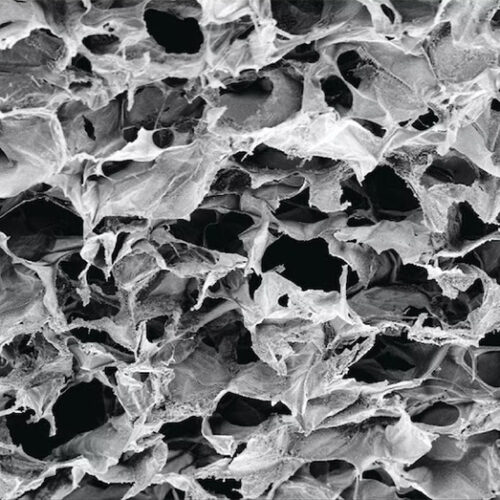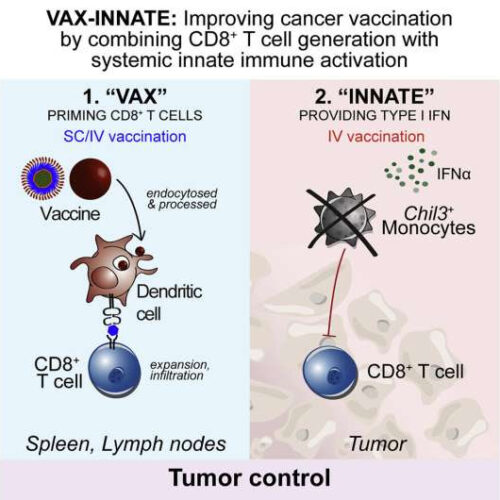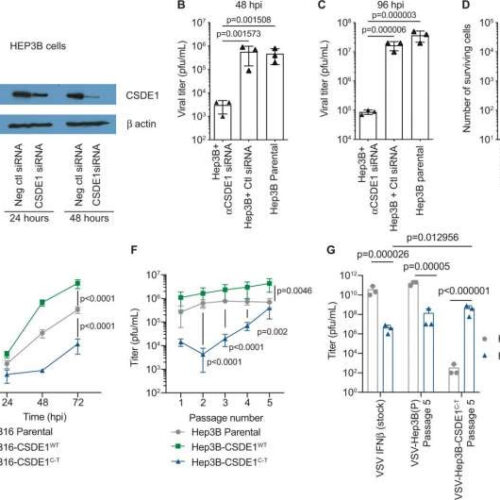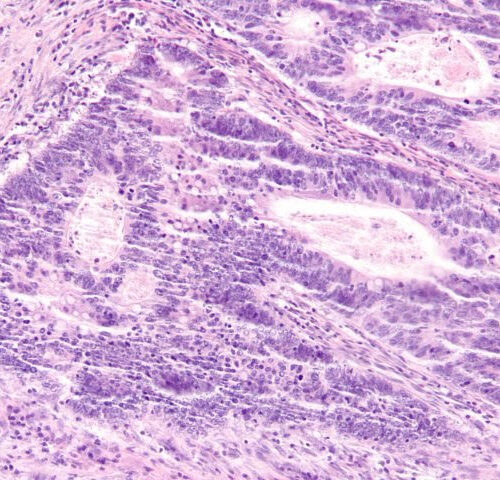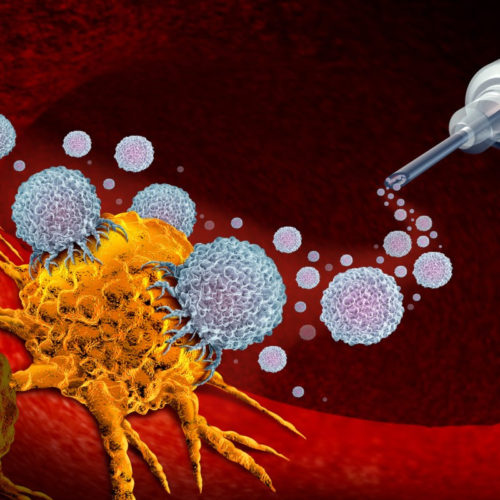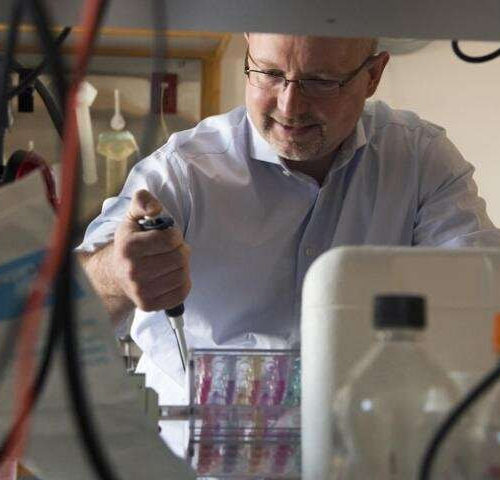AUGUST 7TH, 2023 CONN HASTINGS MATERIALS, MEDICINE, ONCOLOGY Researchers at the Harvard Wyss Institute have developed an anti-cancer biomaterial treatment that combines adoptive T cell therapy and cancer vaccine technology to treat solid tumors. The researchers have called their technique SIVET, which is short for “synergistic in situ vaccination enhanced T cell”. The approach combines local delivery of cytotoxic...
Tag: <span>cancer vaccine</span>
Revolutionary Cancer Vaccine Simultaneously Kills and Prevents Brain Tumors
By BRIGHAM AND WOMEN’S HOSPITAL JANUARY 5, 2023 Researchers at Brigham and Women’s Hospital have found a way to use cancer cells to fight cancer. In a study published in Science Translational Medicine, the team led by Khalid Shah demonstrated that their cell therapy could eliminate established tumors and create long-term immunity in an advanced mouse model of glioblastoma,...
Experimental cancer vaccine shows promise in animal studies
by NIH/National Institute of Allergy and Infectious Diseases Graphical abstract. Credit: Cell (2022). DOI: 10.1016/j.cell.2022.10.006 An experimental therapeutic cancer vaccine induced two distinct and desirable immune system responses that led to significant tumor regression in mice, report investigators from the National Institute of Allergy and Infectious Diseases (NIAID), part of the National Institutes of Health. The researchers found...
Talk between immune cells could lead to new cancer vaccine
YALE UNIVERSITY In the past decade, immunotherapy has helped save the lives of many cancer patients, many with lung cancer, who might have otherwise faced almost certain death sentences. However, only about 20% of patients who received immune therapies — designed to enhance or override natural limitations on immune system response — saw sustained benefits...
Cancer vaccine could be effective way to overcome treatment resistance
by Institute of Cancer Research Fig. 1: CSDE1 is a positive modulator of VSV replication. A Hep3B cells were transfected with no siRNA, Negative control siRNA, or with [s15373 + 15374 siRNA] (2 CSDE1-specific siRNA)46 and levels of CSDE1 assayed by western blotting 24 or 48 h later. (Representative of three separate experiments). B–D Forty-eight hours following transfection with siRNA...
Cancer vaccine improves outcomes in Lynch syndrome model
A new strategy for developing vaccines against cancer showed promise in a proof-of-concept study led by scientists at Weill Cornell Medicine, New York-Presbyterian, and Heidelberg University Hospital. The preclinical results could eventually lead to vaccines that cause the immune system to target cancers early in their development, preventing the disease from becoming established. The study,...
Personalized cancer vaccine is safe, shows potential benefit against cancer
THE MOUNT SINAI HOSPITAL / MOUNT SINAI SCHOOL OF MEDICINE New York, NY (April 10, 2021) – A personalized cancer vaccine developed with the help of a Mount Sinai computational platform raised no safety concerns and showed potential benefit in patients with different cancers, including lung and bladder, that have a high risk of recurrence,...
Personalized skin cancer vaccine demonstrates long-term effectiveness
By Rich Haridy January 21, 2021 Researchers reported durable immune responses to cancer cells up to four years after receiving a personalized vaccine lightsource/Depositphotos VIEW 1 IMAGES New research published in the journal Nature is outlining the long-term efficacy of a novel type of cancer vaccine. The research followed eight skin cancer patients and discovered the experimental treatment offers durable and...
Poliovirus therapy shows potential as cancer vaccine in lab studies
by Duke University Medical Center A modified form of poliovirus, pioneered at Duke Cancer Institute as a therapy for glioblastoma brain tumors, appears in laboratory studies to also have applicability for pediatric brain tumors when used as part of a cancer vaccine. In preclinical studies using mice and human cancer cells, an injection of the...
Researchers find simpler, more effective cancer vaccine approach
by Sarah Avery, Duke University Using a precursor to dendritic cells appears to be an efficient and effective way to stimulate the immune system to fight cancer tumors, according to a study in animal and cell models by researchers at the Duke Cancer Institute. The finding, described online in the Journal of Clinical Investigation, provides...
- 1
- 2

